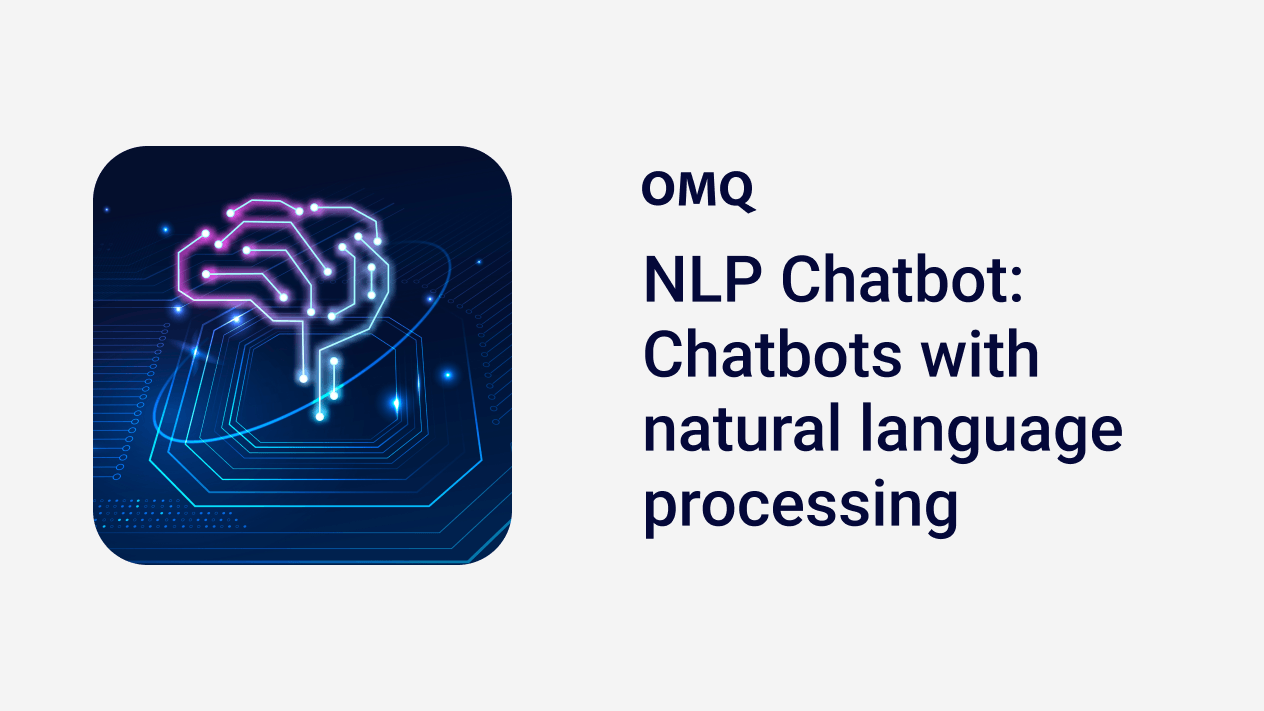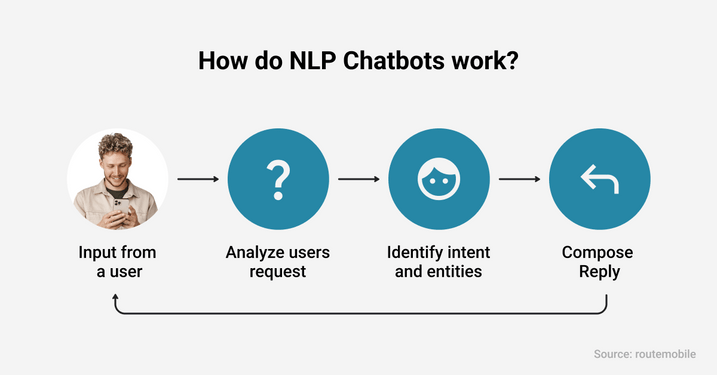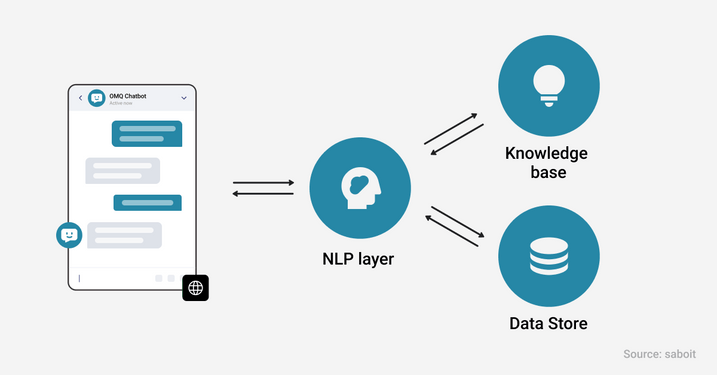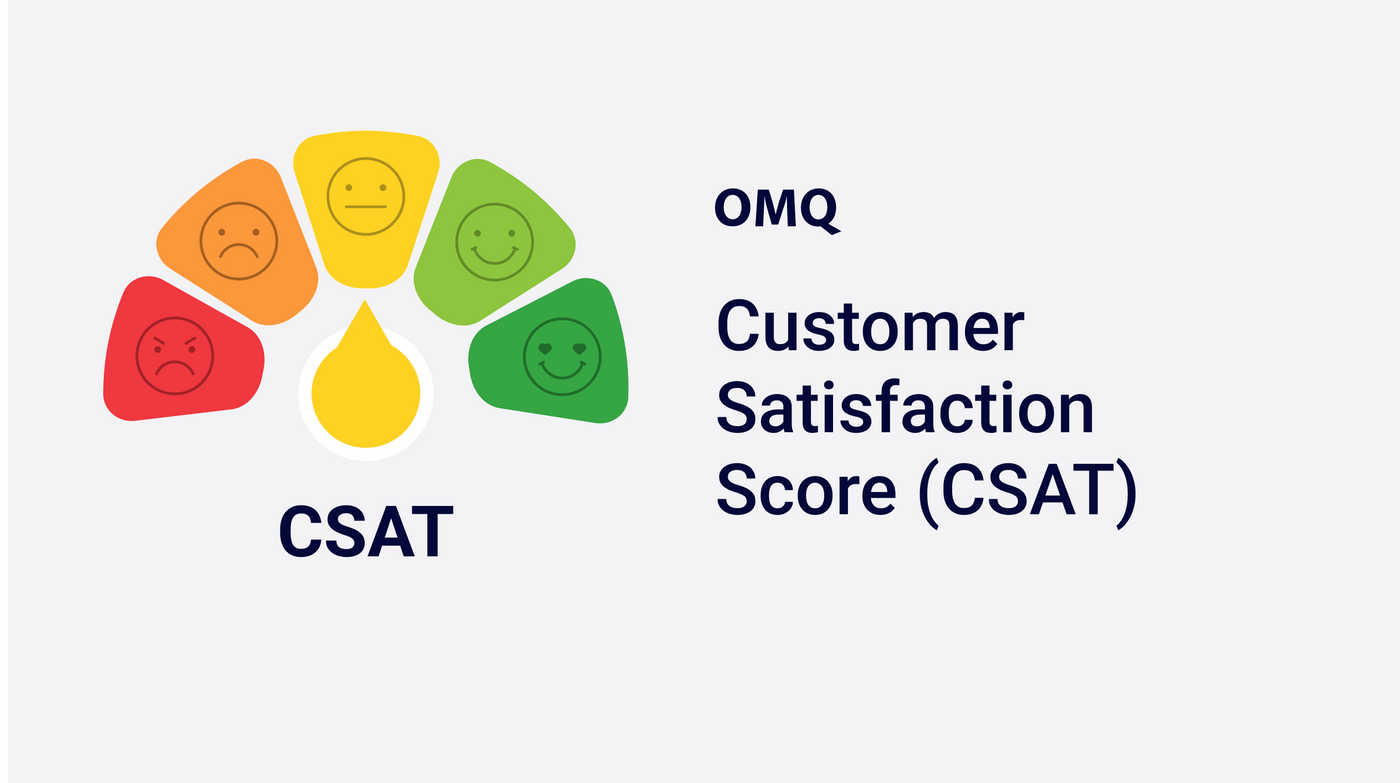Chatbot
NLP Chatbot: The Incredible Benefits of Natural Language Processing in Chatbots
Discover how NLP chatbots are revolutionizing communication and transforming businesses worldwide.

In today’s digital world, NLP chatbots have become an indispensable tool. But what exactly does NLP mean, and why is it so crucial for the development of modern chatbots? Natural Language Processing (NLP) allows machines to understand and interpret human language, enabling seamless interaction between humans and machines.
In this article, we will explore the significance of NLP in chatbot development and how this technology is changing the way businesses communicate with their customers.
- What are NLP Chatbots?
- The Evolution of Chatbots
- Core Components of NLP in Chatbots
- Benefits of NLP Chatbots
- Challenges in Developing NLP Chatbots
- Applications of NLP Chatbots Across Industries
- Future Trends in NLP Chatbot Development
- How to Implement an NLP Chatbot for Your Business
- Ethical Considerations in Implementing NLP Chatbots
- FAQs about NLP Chatbots
- Conclusion
What are NLP Chatbots?
NLP chatbots are advanced programs that use artificial intelligence to understand and respond to human language. By employing natural language processing algorithms, these chatbots can engage in conversations by analyzing both text and spoken inputs. This technology allows bots to grasp the context of a conversation and provide relevant responses, making them particularly useful for customer service applications.

How NLP Chatbots function.
The Evolution of Chatbots
The history of chatbots dates back to the 1960s when ELIZA, one of the first programs of its kind, was developed. Since then, technology has rapidly advanced. With progress in artificial intelligence and especially in natural language processing, modern chatbots have the potential to go far beyond simple tasks and conduct complex interactions with users.
Core Components of NLP in Chatbots
An effective NLP chatbot consists of three main components:
- Natural Language Understanding (NLU): This component helps the bot analyze user input and understand their intent.
- Natural Language Generation (NLG): This involves creating comprehensible responses for the user.
- Dialogue Management: This controls the flow of conversation, ensuring that the bot responds meaningfully.
Benefits of NLP Chatbots
The use of NLP chatbots offers numerous advantages:
- Enhanced User Experience: With natural interaction capabilities, users feel understood and well-served.
- 24/7 Customer Support: Automated systems can be available at any time to handle customer inquiries.
- Cost Savings: Companies can save on personnel resources while still providing high service standards.
Challenges in Developing NLP Chatbots
Despite their advantages, developers face challenges:
- Context Understanding: Ensuring that a bot always captures the correct context is difficult.
- Handling Ambiguous Language: Natural language can be complex; bots must learn to clarify ambiguities.
- Maintaining Conversational Flow: A natural dialogue must be maintained to avoid user frustration.
Applications of NLP Chatbots Across Industries
NLP chatbots find applications in numerous sectors:
- E-commerce: Assisting with orders and product recommendations.
- Healthcare: Providing medical information or scheduling appointments.
- Education: Personalized learning experiences through interactive support.

Sharing Information.
Future Trends in NLP Chatbot Development
The future of NLP chatbot technology looks promising:
- Integration with AI and Machine Learning: Enhanced problem-solving capabilities.
- Multilingual Support: Support for various languages for global reach.
- Emotion Recognition: Detecting and responding to users’ emotional states.
How to Implement an NLP Chatbot for Your Business
To develop a successful NLP chatbot:
- Define clear goals for your bot.
- Choose suitable platforms or tools for creation.
- Thoroughly test your bot before deployment.
Ethical Considerations in Implementing NLP Chatbots
When introducing an NLP chat system, ethical aspects should be considered:
- Privacy Concerns: Ensure that user data is protected.
- Unbiased Interactions: Avoid biased responses through comprehensive training data.
FAQs about NLP Chatbots
What is an NLP chatbot?
An NLP chatbot is an AI-powered program that uses natural language processing to communicate with humans understandably.
How does an NLP chatbot work?
It uses algorithms to analyze human language inputs and generates relevant responses based on the recognized context.
What benefits do NLP chatbots offer in customer service?
They provide round-the-clock support and enhance customer satisfaction through quick response times.
What challenges exist in developing NLP-based systems?
Challenges include understanding context as well as managing ambiguous or unclear requests.
How can companies ensure their data is protected?
By implementing strict privacy policies and encryption techniques, data can be kept secure.
What does the future hold for developing NLP-based systems?
Advanced features like emotion recognition as well as improved learning capabilities through machine learning are promising.
Conclusion
NLP-based systems are revolutionizing how businesses interact with their customers. As technology advances, these bots are expected to become even more powerful and play an even greater role in daily business life. By enhancing both efficiency and customer satisfaction, they represent a valuable investment for forward-thinking companies.


